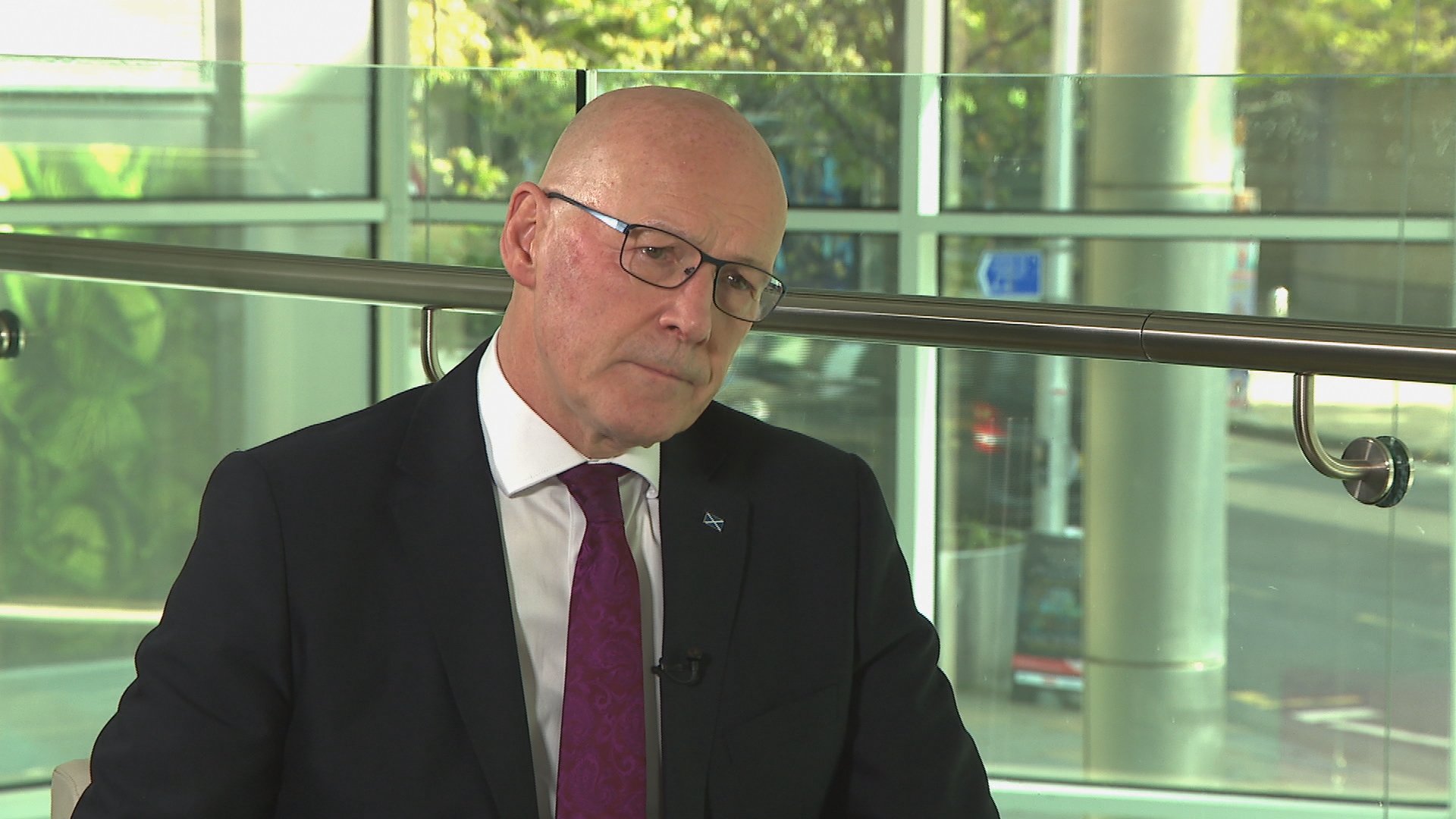MPs are to vote on the controversial assisted dying bill in UK Parliament on Friday, the first such vote in almost a decade.
If passed into law, it means some terminally ill people in England and Wales would be given the right to die at a time of their choosing.
The debate has reached a fever pitch this week as campaigners and groups on both sides have been making their final calls to ministers in the last days before the vote.
The issue has split Parliament as the majority of MPs have not revealed their decision – meaning the outcome is unknown.
Here is a snapshot of the current situation.
What is assisted dying?
This, and the language used, varies depending on who you ask.
Pro-change campaigners Dignity in Dying argue that, along with good care, dying people who are terminally ill and mentally competent adults deserve the choice to control the timing and manner of their death.
The campaign group Care Not Killing uses the terms “assisted suicide” and “euthanasia” and argues that the focus should be on “promoting more and better palliative care” rather than any law change.
They say legalising assisted dying could “place pressure on vulnerable people to end their lives for fear of being a financial, emotional or care burden upon others” and argue the disabled, elderly, sick or depressed could be especially at risk.
What is the current law?
Assisted suicide is banned in England, Wales and Northern Ireland, with a maximum prison sentence of 14 years.
In Scotland, it is not a specific criminal offence, but assisting the death of someone can leave a person open to being charged with murder or other offences.
The last Commons vote on changing the law around assisted dying in England and Wales took place in 2010, with MPs voting against the bill in a second reading by 330 votes to 118.
 iStock
iStockWhat is in the Bill?
There are several requirements for someone to be eligible under the proposed law.
The person must be an adult – aged 18 or older – and be resident in England and Wales and registered with a GP for at least 12 months.
They must have the mental capacity to make a choice about the end of their life and be deemed to have expressed a clear, settled and informed wish – free from coercion or pressure – to end their life.
They must be terminally ill and be expected to die within six months.
They must make two separate declarations, witnessed and signed, about their wish to die.
The process must involve two independent doctors being satisfied that the person is eligible, and the medics can consult a specialist in the person’s condition and get an assessment from an expert in mental capacity if deemed necessary.
A High Court judge must hear from at least one of the doctors regarding the application and can also question the dying person as well as anyone else they consider appropriate.
There must be at least seven days between the two doctors making their assessments and a further 14 days after the judge has made a ruling for the person to have a period of reflection on their decision.
For someone whose death is expected imminently, the 14-day period could be reduced to 48 hours.
What is happening at Westminster?
Labour MP Kim Leadbeater formally introduced her Terminally Ill Adults (End of Life) Bill to Parliament in October.
Ministers have been given a free vote, meaning they are expected to follow their conscience rather than make their choices along party lines.
A debate and first vote are expected to take place on Friday.
If the Bill passes the first stage in the Commons, it will go to committee stage where MPs can table amendments, before facing further scrutiny and votes in both the House of Commons and the House of Lords, meaning any change in the law would not be agreed until next year at the earliest.
Leadbeater’s Bill would apply only to England and Wales. SNP MPs are set to abstain in line with “long-standing” convention
What is happening in Scotland?
Liberal Democrat MSP Liam McArthur has introduced a Member’s Bill – Assisted Dying for Terminally Ill Adults (Scotland) Bill – on the issue at Holyrood.
Under the proposals, eligibility requires being a resident of Scotland for at least a year, being registered with a GP in the country, and being mentally competent.
The person would also have to be capable of taking the medication to end their life by themselves.
McArthur expects the first key vote to take place in the Scottish Parliament in late spring or early summer 2025.
How is the First Minister likely to vote?
Plans to legalise assisted dying raise “deeply significant moral questions”, John Swinney has said – with the First Minister saying he is finding it “more challenging” to decide whether or not he should back the change.
Having revealed last month that he is “wrestling” with the issue, he said he was still considering it “actively and carefully.”
But he has vowed to make his stance known before Holyrood votes on the controversial issue.
 STV News
STV NewsWhat about other parts of the UK, Ireland and the Crown Dependencies?
Any move to legalise assisted dying in Northern Ireland would have to be passed by politicians in the devolved Assembly at Stormont.
In May, Jersey’s parliament voted in favour of drawing up laws to establish an assisted dying service on the island for terminally ill people.
Under the proposed law, adults resident in Jersey for at least a year, with a voluntary, settled and informed wish to end their own life, are eligible if they are terminally ill with a life expectancy of six months, or 12 months if they have a neurodegenerative disease.
If the law is approved in Jersey, the earliest it could come into effect would be spring 2027.
An Assisted Dying Bill in the Isle of Man passed a third reading in July and is undergoing further scrutiny in the island’s Parliament.
As it stands, the Isle of Man Bill is only for adults who have been resident on the island for five years, have a terminal illness with a life expectancy of no more than 12 months, and have a settled wish to end their life.
Campaigners say if the Bill gains royal assent next year, assisted dying could be available to eligible Manx residents from as early as 2027.
In the Republic of Ireland, a committee recommended in March that legislation allowing for assisted dying in certain restricted circumstances should be introduced, but it led to a split, with some committee members arguing the case for assisted dying “has not been established”.
A Voluntary Assisted Dying private member’s bill was introduced in the Irish parliament in June but lapsed earlier this month when an election was called.
 iStock
iStockWhat are the views of the public?
This varies; more than three-quarters of Scots support assisted dying, according to a survey.
The poll was carried out for a new report called Time For Choice, which was launched by the Dignity in Dying Scotland charity.
The survey by YouGov of 1,084 adults found 58% had seen someone suffering at the end of their life and 77% support assisted dying, while 12% of respondents are opposed to a proposed Bill on the issue.
Dignity in Dying Scotland estimates up to 650 people who are dying end their own lives every year, and it described the suicides of terminally ill people as “often lonely and violent”.
At a UK level, research by the Policy Institute and the Complex Life and Death Decisions group at King’s College London (KCL) in September suggested almost two-thirds of just over 2,000 adults surveyed in England and Wales want assisted dying to be legalised for terminally ill adults in the next five years.
But it showed the changeable nature of some people’s views, with some of those voicing support saying they could change their minds if they felt someone had been pressured into choosing an assisted death or had made the choice due to lack of access to care.
Overall, the polling found a fifth (20%) of people said they do not want assisted dying to be legalised in the next five years, while 63% said they do.
Campaigners from Care Not Killing said this polling showed public support for what they term “assisted suicide” had lessened in the past decade and highlighted the statistics around those who are concerned about people feeling pressure to end their lives.
More recent polling from More in Common found that 65% support the principle of assisted dying while 13% oppose it, and the rest are unsure.
Its polling of around 2,000 people across Great Britain this month also found that almost a third (30%) were unaware of a debate on the issue in Parliament.
Around a quarter of those polled said eligibility for assisted dying should be based on life expectancy, which is the case with the current Bill, but 51% said people with terminal degenerative paralysing conditions should be eligible, something the current Bill does not propose.
Follow STV News on WhatsApp
Scan the QR code on your mobile device for all the latest news from around the country


 iStock
iStock

























